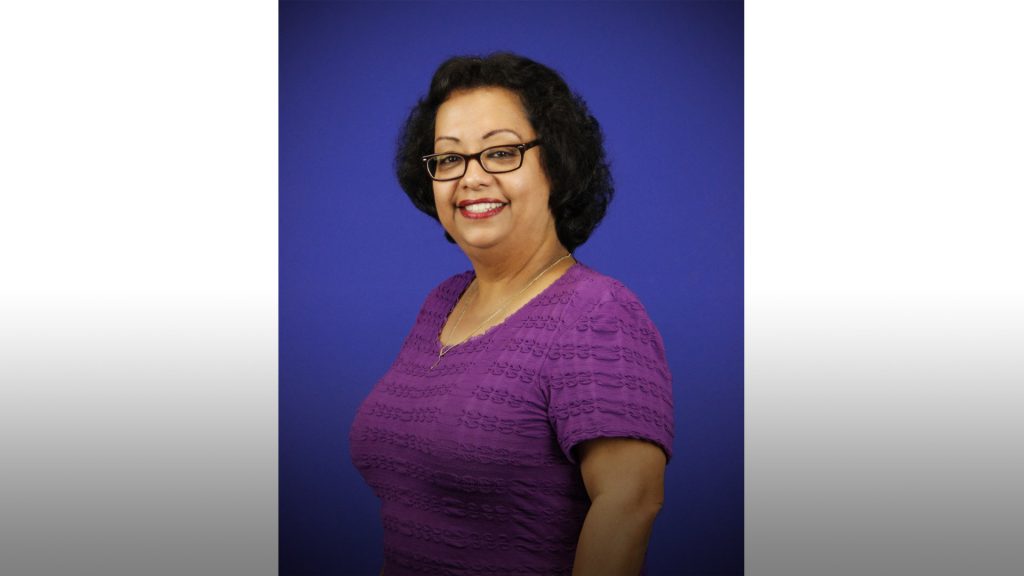Esteemed Sign Language Interpreter Loses Battle To Cancer
Ana Hernandez was just about to leave for lunch when she heard him.
One of her deaf students was running up to her, essay in hand and stress on his face. It was due that day and he needed it proofread.
Hernandez put her soup down and went to work.
Anecdotes like this are par for the course when describing Hernandez.
Her loss will be felt at the ACCESS department. Hernandez, a 57-year-old sign language interpreter at Wolfson Campus, died on March 12 from endometrial cancer.
During her tenure at Miami Dade College, the Cuban-born Hernandez garnered a reputation for helping students in need.
“She was just a really good person all around,” said Kathy Garcia, a deaf services coordinator at North Campus. “She would always put students first and took care of what her students needed.”
Hernandez started at MDC in late 2006 as a sign language interpreter and deaf services coordinator. She eventually became an adjunct professor in the Sign Language Interpretation program before transferring to Wolfson Campus’ ACCESS department in 2013. Drawing from her experience at Miami’s Deaf Services Bureau, Hernandez made it a point to go as far as she could for every student, never putting herself before them.
“She once told me, ‘it was an opportunity to give a voice to people who otherwise wouldn’t be heard,’” said her son, Julian Hernandez. “She found an opportunity to serve.”
Nadine Bozeman, 50, experienced Hernandez’s kindness firsthand. As a deaf student at North Campus, Bozeman turned to deaf services to help her with her classes.
“Ana Hernandez was a woman who had the integrity to help the deaf community,” Bozeman said. “She was able to be my motivator. She was my advocate.”
Hernandez’s office was always open to students. She often stayed past her office hours to help. If she couldn’t be there physically to interpret things for students, she made it a priority to find someone who could.
“Her office door was always open. She always made time for us if we had any questions,” Bozeman said. “We respected her for that. We appreciated her for helping us get to where we need to be.”
That care wasn’t limited to her students. Garcia first encountered Hernandez at North Campus when she served as the deaf services coordinator. Garcia immediately became attached to her welcoming nature.
“She never turned me down. She was always there as an ear with advice, suggestions,” Garcia said. “She was definitely my go-to person, which I did [go to], plenty of times.”
In June of 2015, Hernandez was diagnosed with endometrial cancer, immediately going into treatment to fight the disease. The process initially seemed successful, with Hernandez going into remission in less than a year.
“She was always in good spirits,” her son said. “Someone once told me that the patient oftentimes is the strongest of the bunch. She was definitely an embodiment of that.”
However, by October of 2016, a more aggressive form of the disease spurred, spreading to her liver. After multiple attempts of chemotherapy, Hernandez went into surgery in the summer of 2017 to remove the tumor. When that was unsuccessful, she continued with the chemotherapy through February when a doctor suggested she try Keytruda, an experimental drug designed to teach the immune system to combat the cancer. She was three weeks into the program before she passed.
Even through her health issues, Hernandez stuck to what she knew—helping people. She made sure to go to work every day until her final hospital stay. When her husband, Medardo Hernandez, suggested she stop working, she was defiant.
“‘If I stop working right now, I’d die right now,’” her son recalls Hernandez saying.
Those who know Hernandez say her legacy remains because of her work.
Garcia said she will honor Hernandez “by not giving up. By imitating the good heart and the positive attitude she gave off. She always found the good in people and the potential.”
Ana Hernandez is survived by her son, Julian Hernandez, and her husband, Medardo Hernandez.




